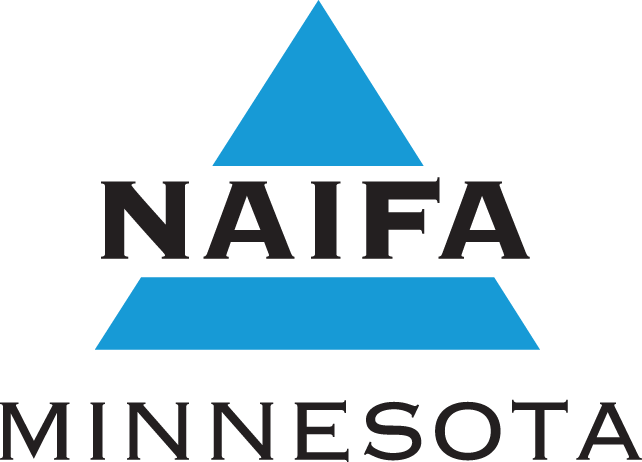Quote of the Week: “If the author of the bill will yield for another question, maybe this one will be a little more painful!" Legislator grilling a freshman on his bill on the House floor.
Bill of the Week: H. F. 3800, A bill for an act relating to agriculture; establishing a residency pilot program for certain racehorses
Big Picture Issues:
We're in the Money!
That was the refrain on Monday in St. Paul when Minnesota Management and Budget (MMB) announced the February budget forecast is projecting a $9.25 billion budget surplus. This is $1.5 billion more than was projected just three months ago. MMB said higher incomes and consumer spending along with higher corporate profits as reasons for the increase. Budget officials cautioned that the projections were made before the invasion of Ukraine by Russia, an action that could threaten global and state economic growth. As expected, there were sharp differences in the Capitol on what to do with the money. Republicans want permanent income tax cuts totaling $8.5 billion over three years. They also want to refill the State’s unemployment insurance trust fund and eliminate state taxes on Social Security benefits. DFLers called for more spending in education, health care, housing, and other areas as well as tax cuts on lower-income Minnesotans. This debate will continue until the closing hours of the 2022 session.
Health Insurance
Senate and House Committees Move Reinsurance Bills
The Minnesota House and Senate both heard bills to extend reinsurance for individual health insurance plans in Minnesota this week. But the two bodies are taking different approaches.
The Senate Commerce and Consumer Protection Committee on Monday heard legislation that extends the State’s reinsurance program for health care through 2027. S.F. 3472 (Dahms, R-Redwood Falls) provides reinsurance for medical claims between $50,000 and $250,000. The bill is expected to cost about $323 million over two years. Commerce Department projections show reinsurance reduced premiums by 20% in 2021 and cut the average cost of premiums by $120 per month. It allowed an additional 89,000 Minnesotans to purchase insurance coverage. The bill was supported by the Chamber of Commerce, the Council of Health Plans, and other business groups. NAIFA joined with other insurance industry associations in voicing support for the bill in a joint letter to Committee members. The bill was approved by the Committee and referred to the HHS Finance and Policy Committee. That Committee heard the bill on Wednesday and approved it before sending it to the Finance Committee. NAIFA again joined with industry colleagues in supporting the measure.
The House Commerce Finance and Policy Committee on Tuesday heard H.F. 3717 (Stephenson, DFL-Coon Rapids), the House companion bill to the Senate bill above. But the bill was amended multiple times to make it more consumer-friendly, setting up a contentious conference committee with the Senate. An amendment was adopted that makes consumers the majority of the MCHA Board. An amendment was also adopted that creates a mental health parity and substance abuse office in the Department of Commerce to assure mental health parity provisions already in law are complied with. The bill was approved and referred to the Committee on Health Finance and Policy Committee.
Both bodies are under a time crunch to get the reinsurance bills passed. Health insurers will soon begin preparing their 2023 rates for submission to the Department of Commerce. They need the certainty of a reinsurance program to protect consumers who will be hit with big premium increases if reinsurance is not extended.
House Committee Approves Public Option
The House Commerce Committee on Tuesday approved legislation creating a public option for the State’s MinnesotaCare program. H.F. 11 (Schultz, DFL-Duluth) establishes the MinnesotaCare public option for persons with incomes greater than the MinnesotaCare income limit of 200 percent of the federal poverty guidelines (FPG) and who meet all other MinnesotaCare eligibility criteria. Implementation of the public option would be effective January 1, 2025, but only if the Commissioner of Human Services certifies to the Legislature that implementation of those sections will not result in the loss of federal basic health program funding. The bill also makes other changes to MinnesotaCare, including requiring a study of a small employer public option and providing eligibility for undocumented noncitizens. The bill was approved and referred to the Committee on Health Finance and Policy. The Senate is not expected to hear the bill.
Bill Introductions
Koegel, Davnie, Carlson, Reyer and Gomez introduced:
H.F. 3788: A bill for an act relating to commerce; restricting underwriting for automobile insurance; amending Minnesota Statutes 2020, section 72A.20, by adding a subdivision.
The bill was read for the first time and referred to the Committee on Commerce Finance and Policy.
Haley introduced:
HF. 3818: A bill for an act relating to health insurance; requiring the commissioner of commerce to evaluate geographic rating areas; requiring reports; appropriating money.The bill was read for the first time and referred to the Committee on Commerce Finance and Policy.
Senators Klein, López Franzen, Wiklund, and Rest introduced:
S.F. No. 3612: A bill for an act relating to health care; creating a Minnesota advance premium tax credit and cost-sharing subsidies for eligible individuals who enroll in an eligible qualified health plan through MNsure; amending Minnesota Statutes 2020, section 62V.05, subdivision 1, by adding subdivisions; proposing coding for new law in Minnesota Statutes, chapter 290.
Referred to the Committee on Health and Human Services Finance and Policy.
Senators Marty and Eaton introduced:
S.F. No. 3618: A bill for an act relating to human services; providing MinnesotaCare eligibility for undocumented noncitizens; amending Minnesota Statutes 2020, section 256L.04, subdivision 10.
Referred to the Committee on Health and Human Services Finance and Policy.








